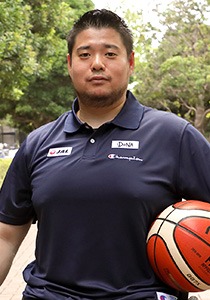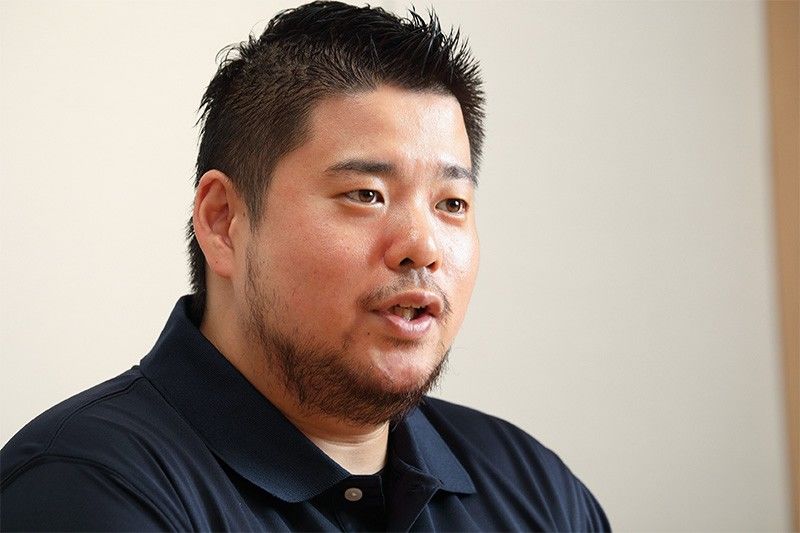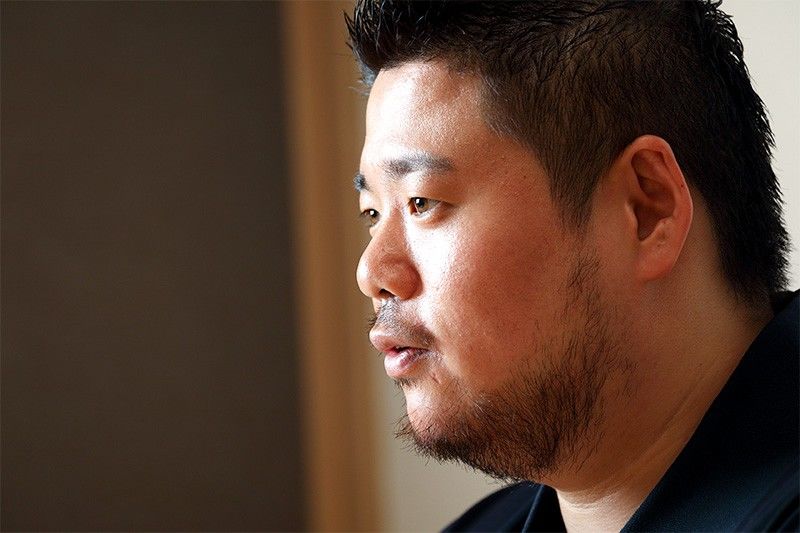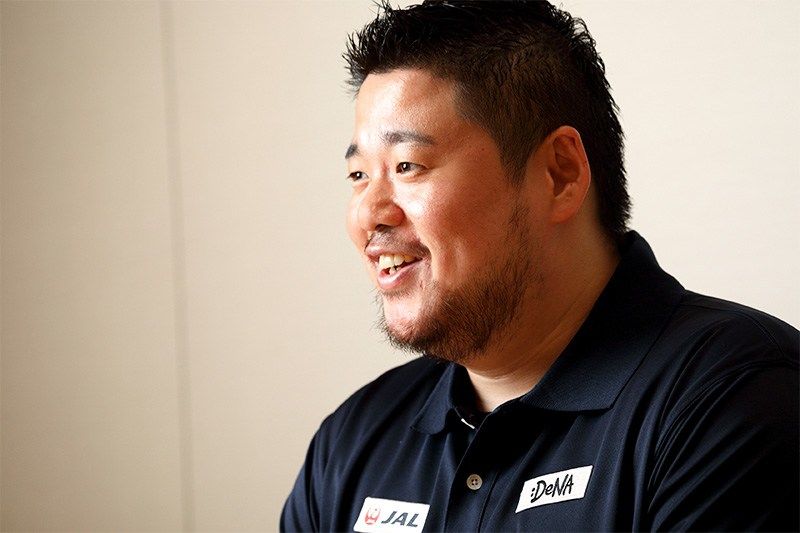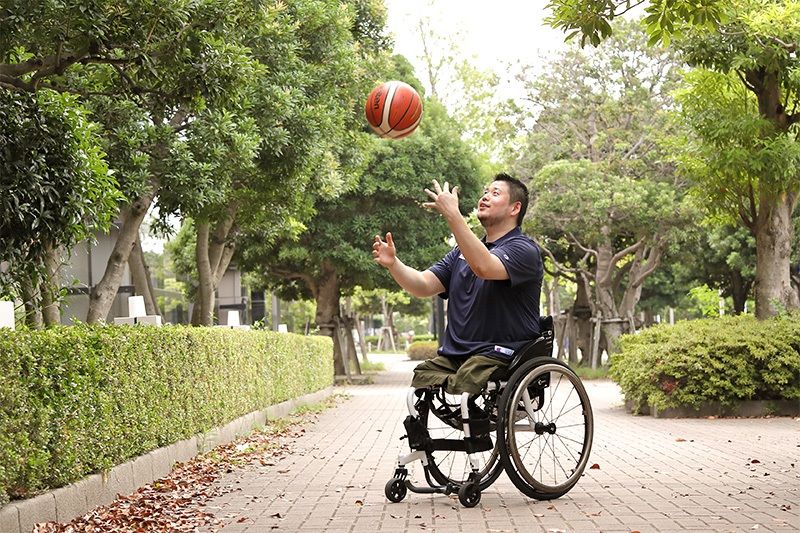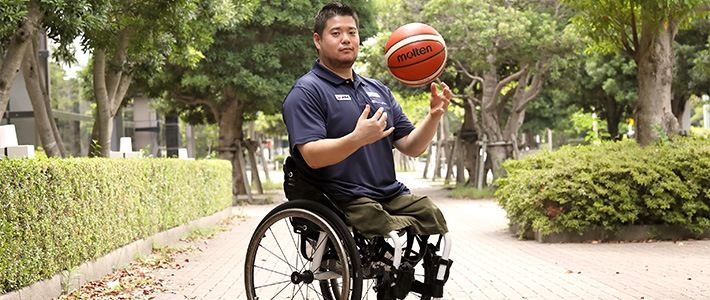
Paralympic Athletes, Up Close and Personal
Seated Hoops Star: Kōzai Hiroaki Leads Japan’s Wheelchair Basketball Charge
Sports Tokyo 2020 Society- English
- 日本語
- 简体字
- 繁體字
- Français
- Español
- العربية
- Русский
Eyes on Wheelchair B-Ball
Anyone who has watched a wheelchair basketball game knows that the sport is as fast and furious as its able-bodied counterpart. Players zip up and down the hardwood court at breakneck speeds, turning on a dime, firing off passes, sinking shots, and colliding in spectacular tangles of limbs and metal.
In Japan the sport is gaining in popularity. Inoue Takehiko, author of the iconic basketball manga Slam Dunk, features it in his popular series Real, which tells tales of struggle and triumph through wheelchair basketball.
Japanese national team player Kōzai Hiroaki welcomes the attention, but prefers to raise the profile of the sport with his own play on the court. Since 2013, Kōzai has made a name for himself as a star forward in Germany’s Bundesliga. With the 2020 Tokyo Paralympic Games on the horizon, he is now focusing his efforts on leading Japan to its first wheelchair basketball medal.
Focusing on the Transition Game
Kōzai, who has played in three Paralympics, knows that mounting the podium is no easy task. Two years ago, in Rio de Janeiro, he and veteran center Fujimoto Reo led Japan’s campaign under head coach Oikawa Shinpei. But despite high hopes, the squad bowed out in the group stage.
This was a bitter disappointment for a person who prides himself on his accomplishments as a pro player. “In Beijing and London I was the youngest player on the team,” explains Kōzai. “I just wanted to play my hardest and see how my skills matched up on the world stage. But in Rio my goal was to make a strong showing to create momentum for the Tokyo Games. The team’s performance, though, convinced me that we had to completely change our approach.”
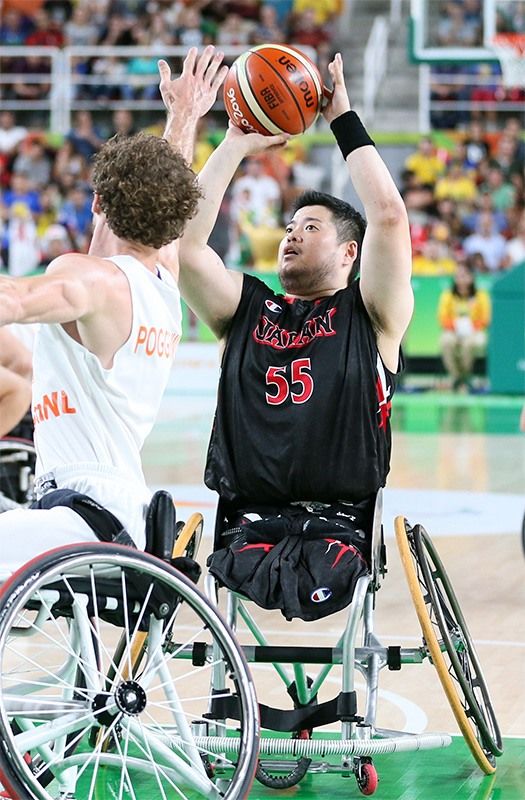 Kōzai takes a shot during a group-stage game against the Netherlands at the Rio de Janeiro Paralympic Games. (© Jiji)
Kōzai takes a shot during a group-stage game against the Netherlands at the Rio de Janeiro Paralympic Games. (© Jiji)
After Rio, the squad shifted from a focus on individual skills to running a transition game. The team brought in professional trainers to help build the mental and physical stamina needed to make the rapid changeovers from defense to offense. Kōzai also made a change in his professional career, switching clubs from BG Baskets Hamburg, where he had played for four seasons, to the top Bundesliga team RSV Lahn-Dill.
The team’s efforts appeared to be paying off when in June of this year Japan defeated Australia, Canada, and Germany, all higher-ranked teams, to win the Mitsubishi Electric World Challenge Cup, a four-team tournament held in Tokyo. Just two months later, though, the squad finished a dismal ninth at the World Championships in Germany.
Kōzai admits the result proves the national team still has a way to go before it can be considered a medal contender. “Our goal was to finish in the top four,” he exclaims. “We were able to beat strong teams like Italy and Turkey, and the games we lost were all by a slim margin. This shows we’re moving in the right direction, but we still lack the consistency and fortitude needed to claw back from behind or hold on to leads.”
Wheelchair basketball is dominated by teams in North America and Europe. Kōzai’s alma mater, the University of Illinois, boasts a leading wheelchair basketball program and is a powerhouse in intercollegiate competition. Canada has a national academy that trains players, and in Britain the sport has broad following, with many cities supporting their own professional clubs. The professional leagues in Germany, Italy, and Spain also attract top players from around the globe.
Even amid such competition, Kōzai is confident that Japan is developing into a top team. “Although we didn’t get the result we were aiming for at the World Championships, the squad is suited to transition basketball. Our players have the technical skills necessary to play a fast-paced game, and if we keep getting stronger mentally and physically then a medal in 2020 is certainly not out of the question.”
Early Beginnings
Born in Chiba Prefecture, Kōzai grew up an active, sports-loving boy—he wears the number 55 when playing for Japan in honor of his boyhood hero, former New York Yankee slugger Matsui Hideki. Although born without lower limbs, he attributes his athletic nature to his father, a former basketball player in school.
Kōzai’s own start on the court at the age of 12 came when his mother spotted an ad for a wheelchair basketball event hosted by local team Chiba Hawks. Attending with his father, he was initially enamored with the specially designed wheelchairs used in the sport. “I was spellbound,” he recalls warmly. “They were so much lighter, faster, and easier to handle than a normal chair.”
At the event he was encouraged to join the Hawks by captain and current national team assistant coach Kyōya Kazuyuki. A former professional soccer player in Japan’s J. League, Kyōya went on to become a wheelchair basketball star after suffering a spinal cord injury in a car accident. Kōzai also caught the eye of his eventual mentor Oikawa, who offered training advice to the hard-working youngster.
Master of the Game
Kōzai attended his first major training camp while still an eighth grader. Organized by Oikawa, it was held in Sapporo, Hokkaidō, and featured instruction by legendary wheelchair basketball coach Mike Frogley. The experience earned Kōzai special recognition for his play and solidified his commitment to the sport.
At the camp Kōzai says that Frogley recommended he train with him in the United States, an idea he admits that as an adolescent he did not initially take seriously. However, seeing the level of players around the world after debuting for the under-23 national team while still a high schooler, led him to seriously consider Frogley’s invitation.
After some prodding by his father, who sensed his son’s feelings, Kōzai decided to give it a go in the United States. After graduation he crossed the Pacific to train with Frogley, then head coach of the wheelchair basketball team at the University of Illinois.
The Road to the Pros
The days leading up to his departure were an emotional rollercoaster ride and Kōzai, who was still a teenager at the time, wryly admits to “wailing like a baby” before leaving Japan. However, once in America he got to work building his English communication skills as a community college student. After two years he successfully transferred to the University of Illinois, where he majored in sports management.
Frogley expected his players to excel in the classroom as well as on the court. Looking back, Kōzai says, “It took everything I had to keep up with both the basketball and study schedules. Still, I never once considered throwing in the towel.”
In his time playing for Illinois Kōzai served a stint as team captain and won consecutive MVP honors at the national championship tournament. Although satisfied with his achievements with the team, he says earning his diploma gave him the greatest sense of accomplishment. “I was proud of myself for coming through the experience in one piece.”
After college, Kōzai opted not to return home to Japan and instead sought new opportunities for growth by going up against the world-class players in Germany’s Bundesliga. After several seasons with Hamburg, this year he joined top club RSV Lahn-Dill with the unabashed intent of bolstering his game ahead of the 2020 Tokyo Paralympics.
Kōzai knows his experience will be a key component in the national team’s efforts to perfect its own brand of transition basketball. Together with his teammates he will continue to polish his play with dreams of claiming gold in Tokyo, and beyond.
(Originally published in Japanese. Interview photos by Hanai Tomoko, unless otherwise noted.)
